This week marks the 173rd anniversary of the publication of the second edition of The Tenant Of Wildfell Hall by Anne Brontë. The second edition was necessitated because it had proved hugely popular, with the first edition selling faster than even her sister Charlotte’s Jane Eyre had. In today’s new post we’re going to look at Charlotte Bronte’s opinion of The Tenant Of Wildfell Hall, and why she may have held it.
One reason for the huge popularity that Anne’s second novel enjoyed after it’s launch was of course that it’s a fabulous novel executed brilliantly, but it was also because it had a whiff of controversy about it. Some critics had been damning of the subject matter of the book, and unsurprisingly that made a lot of people want to read it for themselves.
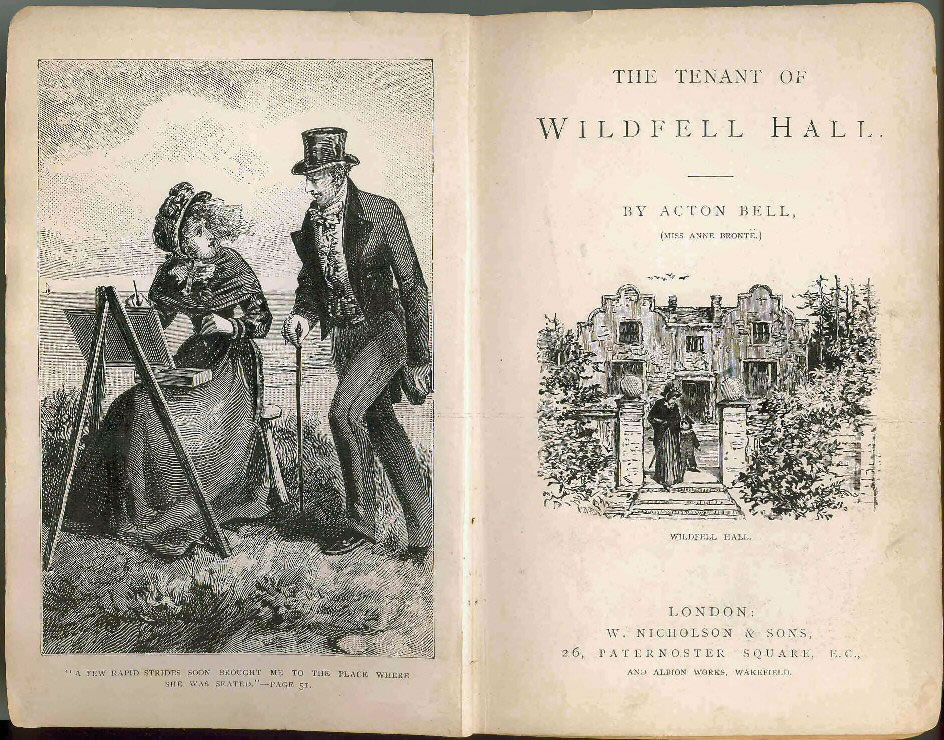
‘The Atlas’, for example, were most concerned with the depiction of the upper classes, who in the reviewer’s eyes seem to be beyond reproach: ‘This, perhaps, is the passage which of all others in the book the general reader will be most inclined to describe “powerful.” But it is power of a bad kind. It is sheer exaggeration. These creatures are supposed to belong to the class “gentlemen” – to have moved in good society, to have been subject to humanising influences. They appear, too, in a story illustrative of modern life. We need not take any trouble to explain why we pronounce them essentially unreal.’
It was criticism such as this which led Anne Brontë to compose her famous preface to the second edition of The Tenant Of Wildfell Hall. In it she effectively shot down those who had criticised the authenticity of her work:
‘My object in writing the following pages, was not simply to amuse the Reader, neither was it to gratify my own taste, nor yet to ingratiate myself with the Press and the Public: I wished to tell the truth, for truth always conveys its own moral to those who are able to receive it… When we have to deal with vice and vicious characters, I maintain it is better to depict them as they really are than as they would wish to appear. To represent a bad thing in its least offensive light, is doubtless the most agreeable course for a writer of fiction to pursue; but is it the most honest, or the safest? Is it better to reveal the snares and pitfalls of life to the young and thoughtless traveller, or to cover them with branches and flowers? O Reader! if there were less of this delicate concealment of facts – this whispering ‘Peace, peace,’ when there is no peace, there would be less of sin and misery to the young of both sexes who are left to wring their bitter knowledge from experience.’
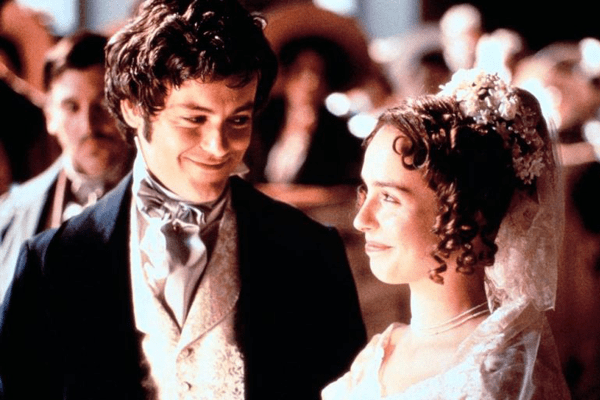
Nevertheless, many discerning critics had praised Anne’s novel. ‘The Athenaeum’, for example, called it, ‘the most interesting novel which we have read for a month past’, whilst the ‘Morning Herald’ hailed it as ‘a thorough racy English novel’ (which probably helped sales no end.)
What did Charlotte make of Anne’s latest work? From pronouncements she made after Anne’s death, which tragically came just a year after she found success with ‘Tenant’, we can see that she was less than enamoured with the work. In a letter of 5th September 1850 to W.S. Williams (her publisher Smith, Elder was talking of publishing new editions of her sisters’ work), she pronounced:
‘“Wildfell Hall” it hardly appears desirable to preserve. The choice of subject in that work is a mistake – it was too little consonant with the character, tastes and ideas of the gentle, retiring, inexperienced writer. She wrote it under a strange, conscientious, half-ascetic notion of accomplishing a painful penance and a severe duty.’
Charlotte returned to this theme a year later when she wrote her ‘biographical notice’ of Acton Bell (Anne’s pseudonym of course): ‘The choice of subject was an entire mistake… She had in the course of her life, been called on to contemplate, near at hand and for a long time, the terrible effects of talents misused and faculties abused; hers was naturally a sensitive, reserved and dejected nature; what she saw sank very deeply into her mind; it did her harm. She brooded over it till she believed it to be a duty to reproduce every detail as a warning to others.’
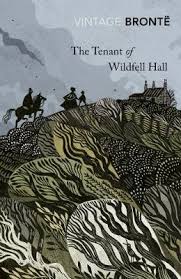
Were these views shaped by Anne’s passing? We have letters showing what Charlotte thought of the book at the time of its publication. On 31st July 1848 she wrote (once again to W.S. Williams):
‘The fact is neither she [Anne] nor any of us expected that view to be taken of the book which has been taken by some critics: that it had its faults of execution, faults of art was obvious; but faults of intention or feeling could be suspected by none who knew the writer. For my own part I consider the subject unfortunately chosen – it was one the author was not qualified to handle at once vigorously and truthfully; the simple and natural, quiet description and simple pathos are, I think, Acton Bell’s forte. I liked Agnes Grey better than the present work.
In reply to this, it seems that Williams countered that he thought Huntingdon, the central villain of The Tenant Of Wildfell Hall, reminded him of Rochester. Predictably, Charlotte wasn’t happy at that assessment, and on 14th August 1848 replied with a fascinating assessment of some of the male protagonists of Brontë novels:
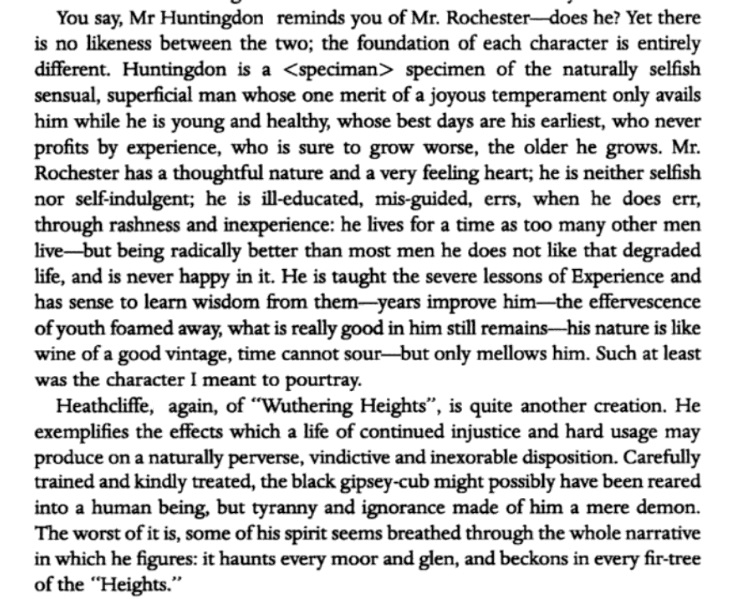
It’s quite clear that Charlotte Brontë was far from a fan of The Tenant Of Wildfell Hall, but why was this? There are many hypotheses; could it be that Charlotte was jealous of the success of Anne’s second novel, and felt that it had eclipsed her own Jane Eyre? Sibling rivalry is as old as Cain and Abel after all. Could it be that Charlotte did indeed think her youngest sister was simply too meek to write such a book, and to endure the consequences of writing it? I personally think that the subject matter hit too close to home for Charlotte to bear. Huntingdon was not based on Branwell Brontë (although Lowborough in the novel may be closer to him), but the episodes of drunken and drug-fuelled behaviour may have seemed familiar to Charlotte – perhaps she worried that Anne’s novel was placing Branwell’s frailties in front of the world?
Without a time machine we shall never know, but Charlotte’s pronouncement on the novel had a long lasting effect. It was not re-published alongside Wuthering Heights and Agnes Grey, and in fact it was ten years after Anne’s death, and four after Charlotte’s own exit, that another edition saw the light of day – by which time the novel had been all but forgotten.
The effect was long lasting, it seemed like it might do the novel and author eternal damage, but as we see in The Tenant Of Wildfell Hall itself, Anne was aware that ‘eternal’ doesn’t really mean forever:
‘”How will it be in the end, when you see yourselves parted for ever; you, perhaps, taken into eternal bliss, and he cast into the lake that burneth with unquenchable fire – there for ever to -”
“Not for ever,” I exclaimed, “‘only till he has paid the uttermost farthing;’ for ‘if any man’s work abide not the fire, he shall suffer loss, yet himself shall be saved, but so as by fire;’ and He that ‘is able to subdue all things to Himself will have all men to be saved,’ and ‘will, in the fulness of time, gather together in one all things in Christ Jesus, who tasted death for every man, and in whom God will reconcile all things to Himself, whether they be things in earth or things in heaven.’”
“Oh, Helen! where did you learn all this?”
“In the Bible, aunt. I have searched it through, and found nearly thirty passages, all tending to support the same theory.”
“And is that the use you make of your Bible? And did you find no passages tending to prove the danger and the falsity of such a belief?”
“No: I found, indeed, some passages that, taken by themselves, might seem to contradict that opinion; but they will all bear a different construction to that which is commonly given, and in most the only difficulty is in the word which we translate ‘everlasting’ or ‘eternal.’ I don’t know the Greek, but I believe it strictly means for ages, and might signify either endless or long-enduring.”
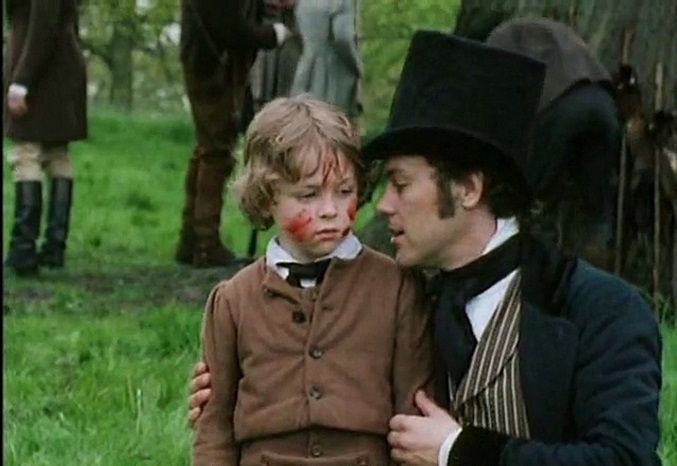
Long-enduring though the reputational damage to ‘Tenant’ was, it did not last forever. Today it is rightly hailed as a masterpiece, a book well ahead of its time that has a message as important today as it has ever been.
Before I go, I have to say a big thank you for all the kind messages you sent in response to last week’s post. Thank you. Such kind words and thoughts certainly make writing this blog worthwhile, and I’m sure they will do me a world of good. I hope to see you again next week for another new Brontë blog post.
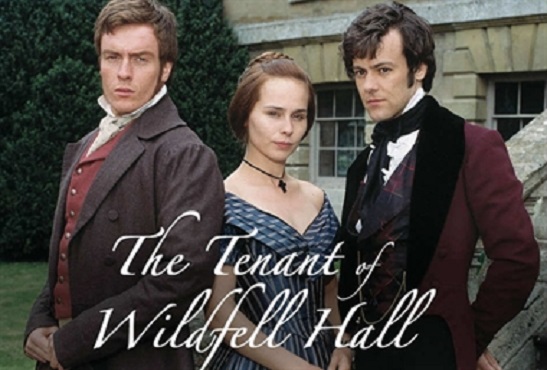
A fascinating article. I read and reviewed TTOWH on my blog, Rereading Jane Eyre, recently, after reading it for the first time, and I immediately thought of Branwell. Anne Bronte depicted drunken and vice ridden men, and the havoc they caused in their lives and families, honestly, and as far as I could tell, accurately.
There could be multiple reasons why her sister, Charlotte, reacted so negatively. Perhaps the topic was too close to home. I also thought of Rochester. In spite of the sisters’ secluded lives, they were well aware of the Victorian male psyche and behaviour. All their novels are a primarcy source and inspiration for any author of neo Victorian fiction. Thank you so much for sharing this post.
An attitude similar to Charlotte and other readers’ hostility to The Tenant of Wildfell Hall towards George Eliot’s “Janet’s Repentance.” It is basically a story about a violently abused woman, but she does not command the empathy nor can her story do its work because she has become alcoholic as a way of coping with her reality. There is still unthinking prejudice against women who become alcoholics. Eliot’s title feeds into this and it’s included in three tales whose title further obscures its important content: that the community collude in the abuse of Janet. I have tried teaching it and been only partly successful
I’n her comments on ‘The ‘Tenant’, Charlotte shows herself at her mealy mouthed ‘worst’, truly exemplary of 19Century (Victorian) prudishness.
But for me, the really interesting question is where did Anne and Emily witness even second hand, the scenes of debauchery and emotional depravity they describe so accurately. Was it all made up? I don’t think so; the person who wrote the Second Preface was no shrinking violet or hot-house creature but could have been one of our most admirable contemporaries.
Thanks for the post and sorry for my flowery comment.
Great thoughts on Anne’s masterpiece. I was always baffled as to why Charlotte dismissed it. Seems that it was not in keeping with Anne’s quiet demeanor. I am so glad that it has been recognized as the brilliant novel that it is. Ahead of its time and wonderfully written.
Thank you for this post! I first read Tenant a few years ago, and I was amazed at how modern it felt, dealing with abusive relationships and child custody. I’m so glad it’s getting its due respect today.
While close contact with Branwell’s descent into addiction was a valuable source for Wildfell Hall, I felt that it was much closer to the case of Mrs Caroline Norton’s battle to get custody of her children. At times it almost seems to be a roman à clef. The possibility of the litigious Mr Norton bringing an action for libel might have occurred to Charlotte. This case was huge in the mid-1830s, and the ramifications went on for many years afterwards, and it was very widely reported. The Norton family were connected to Kettlethorpe Hall, in Wakefield, and more distantly to Norton Conyers (possibly Thornfield in Jane Eyre). Charlotte also might have been a bit miffed at Huntingdon’s affair with the naughty governess Alice – as a clergyman’s daughter knowingly pursuing a married employer was, lets just say, a bit too close to home, and very “off-message”. In some ways the Huntingdon / Alice / Helen triangle is almost a sly affront to the Rochester/Jane/Bertha set-up.
Dear Nick.
I just wanted to thank you for the smartness you employ in every one of your Sunday columns. I felt I needed to comment on this one precisely because I’m about to take in some of your references in the Master´s dissertation I’m on the verge of finishing these days about Anne Brontë. Plus, I have included your blog space and the extraordinary labour you do to give an accurate visibility of Anne Brontë in my paper.
Thank you very much indeed.
Best regards.
Paloma RP
Thank you very much Paloma, and good luck with your dissertation!